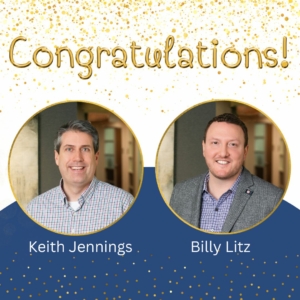Nonprofits and Donor-Advised Funds – an Accounting Perspective
Contributions to nonprofits made through donor advised funds (DAF) have steadily increased, with some studies suggesting they have risen over 400% in the last decade. We continue to receive questions in our practice on the proper accounting treatment, from the perspective of a nonprofit organization receiving funds from a DAF.
What is a donor advised fund? A DAF is an identified account operated by a section 501(c)(3) organization, which is called a sponsoring organization. Individual donors contribute money to these accounts held by the sponsoring organization. Donors can recommend grants to charities of their choice, but the funds are ultimately at the discretion of the sponsoring organization, which is required in order for the transaction to be considered a charitable contribution to the donor. A tax advantage is that donors get an immediate charitable deduction for amounts donated to DAFs, while they can request that the donations to the nonprofit organizations can be spaced out over multiple years. Also, donors can potentially avoid capital gains tax by donating appreciated assets to a DAF.
Some of the larger donor advised funds are Fidelity, Schwab and Vanguard Charitable. Fun fact – since they are all 501(c)(3) organizations you can look up their 990s on Guidestar.
What are the advantages of a nonprofit organization receiving contributions through a donor advised fund? Generally speaking, many donations received from a donor advised fund are considered to be without donor restrictions. This then means there are no reporting requirements on these gifts, which cuts down on administrative time and allows the funds to be used for general operations of the nonprofit organization.
What are the potential drawbacks? Also, contributions from a DAF can limit access to donor information as the donor is not required to be specified, which may make the development of donors difficult.
Can a contribution from a donor advised fund be used to fulfill an individual donor’s promise to give? This appears to be a grey area with no explicit guidance. The IRS did issue Notice 2017-73 that discusses this topic, but it’s not authoritative.
As indicated above, the ultimate decision on the use of funds is with the DAF. However, the notice discusses that a payment from a DAF may fulfill an individual pledge if no reference is made that the DAF is fulfilling the individual pledge, the individual donor doesn’t receive any benefits (more than incidental) as result of this payment, and that the donor does not attempt to claim a charitable deduction as a result of the DAF payment. Some examples of more than incidental benefits could be using the DAF distribution to pay for Gala tickets or membership fees.
What are the tax considerations of donor advised funds for nonprofit organizations? As of December 31, 2023, contributions received from DAFs do not count towards the 2% limitation when calculating the public support test on Schedule A of the Form 990 as they are treated as donations from public charities. The Department of the Treasury has issued proposed regulations that would remove this benefit, but it has yet to be enacted.
These donations do get added to Schedule B (if they are above the threshold) but are shown as donations from the donor advised fund, not the individual. Also, nonprofit organizations may thank the original donor to the DAF, but they should not issue a donor acknowledgement letter to the DAF or the original donor.
If you have any questions on the accounting for donor-advised contributions, please do not hesitate to contact us.
By: Keith Jennings and Rachel Zutshi


